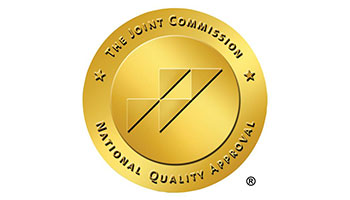As a travel nurse, getting sick has unique consequences. Missing shifts can lead to a smaller paycheck, poor attendance record, and even a terminated contract. So how do you take of yourself while maintaining a good relationship with your facility? Here is everything you need to know in order to successfully navigate sickness while on assignment.
Calling out sick
So you’re sick, and you have a shift approaching in T-minus 10 hours. What do you do now? Each agency has their own procedure they like to follow in these situations. But generally, you should contact your agency and facility as soon as you know you won’t make it in to work.
Contact your agency
Your agency is there to help advocate for you. Informing them of missed shifts can help them work more efficiently with the facility and any policies they have in place. For example, if you contracted the Flu and will be missing multiple shifts, your recruiter can help smooth things over with your hospital.
Contact your facility
Unless otherwise stated by your agency, you should always contact your facility if you’re feeling under the weather. Promptly notifying your supervisor by giving them a phone call (not shooting them a text) helps them plan for the day without you. It also allows you to stay in good regards with your facility as a professional, responsible, employee.
Calling out sick considerations
There is a difference between actually being sick, and just not wanting to work. So, before you pick up your phone to make that call, here are a few things to consider when it comes to missing shifts.
Short paycheck
Unfortunately as a travel nurse, there are no paid days off. This is because your agency only gets to collect money from your hospital for the hours you work. If you don’t work, your agency can’t bill the facility. So, simply put, if you only work 24 hours out of your contracted 36, you only see a 24 hour paycheck.
Facility relationship
Facilities understand that everyone gets sick sometimes. Missing one or two shifts due to an illness won’t affect your relationship with your facility. However, calling out excessively will. Since the average travel nurse contract ranges from 8-13 weeks, even missing four days can make you look like an unreliable employee. Although this isn’t fair, this can lead to a poor review from your facility, a possible termination, and no extension offers.
Making up missed shifts
The best way to maintain a good relationship with your facility and keep your full paycheck, is by making up missed shifts. Typically, you can pick up an extra shift within a week or two without any problems. Although, if you do run into a few road blocks, contact your unit supervisor or your recruiter for help.
Understand your contract
It’s important to understand your contract so you can be aware of what is expected from you. Regarding missing shifts, there are a few things you should look for:
- Procedures for calling out of work
- Allowance for missed shifts
- Documentation
- Paycheck implications
Plan in advance
Okay, so no one ever plans on getting sick, but you should still know what to do if it happens.
Knowing how to take care of yourself when you feel sick is vital to being able to recover as fast as possible. When you find yourself in an unknown city, you should take some time to familiarize yourself with the area.
Closest care centers
If an emergency happens, the last thing you want to do is have to Google search where to go. Map out your nearest pharmacies and urgent care centers ahead of time so you’re prepared. It could also be a smart idea to save their contact information in your phone just in case.
Emergency contacts
You usually have a go-to person for your emergency contact information. However, they may not be very good help if you’re injured 3,000 miles away. Making an updated list of who can be contacted – including a local reliable friend or coworker – can be extremely helpful in unexpected situations.
Preventative care
If at all possible, of course it’s preferred to never get sick while on assignment. But obviously, this is much easier said than done. So, here are a few best practices to help you stay healthy while on the road:
- Stay hydrated
- Get 7-9 hours of sleep
- Exercise for at least 30 minutes a day
- Eat a well-balanced diet
Even with the best preventative care, people just get sick. Your agency and facility will understand if you need to miss work, so please prioritize your health. As long as you’re upfront about your situation, hold yourself in a professional manner, and attempt to make up any missed shifts, you can still be a successful and reliable travel nurse.
If you feel sick while on assignment, the best thing to do is get yourself the care you need. You cannot help others if you’re not helping yourself. Ready to work with an agency that “gets it?” Contact us today!









